This post may contain affiliate links. Please read our disclosure policy.
Yes, pure oats are technically gluten free, but it’s not always that simple. Oats are often contaminated with gluten because they’re typically grown in the same fields, processed in the same facilities, or on the same equipment as wheat, barley, and rye – the classic gluten-containing grains.
Certified gluten free oats, however, are grown on dedicated fields, stored in gluten free silos, and processed separately from gluten-containing grains. This ensures they meet strict safety standards, making them a versatile and safe gluten free ingredient for most people with gluten sensitivities or celiac disease.
It’s worth noting that some people with celiac disease or gluten sensitivity may also react to avenin, a naturally occurring protein in oats. If you’re unsure about your tolerance, consult a healthcare professional before including oats in your gluten free diet.

Why most regular oats aren't safe
Regular oats are often unsafe for gluten free diets because of cross-contact with gluten-containing grains. This contamination introduces trace amounts of gluten in oats, which can cause reactions in people with celiac disease or gluten sensitivity. These risks make most oats unsuitable unless they are certified gluten free.
Understanding cross-contact
Cross-contact occurs when gluten-containing grains come into contact with oats, introducing gluten into otherwise gluten free oats. This contamination can happen at several stages during production:
- In the fields: Oats are often grown near wheat, barley, or rye, allowing grains to mix during planting and harvesting.
- During harvesting: Shared equipment, like combines and threshers, may carry gluten residues between crops, even after cleaning.
- Storage and transport: Oats are frequently stored or transported in facilities that also handle gluten-containing grains, increasing the chance of cross-contact.
- Processing plants: Factories that process oats often handle other grains on the same equipment, where even thorough cleaning may not remove all traces of gluten.
To be truly gluten free, oats must remain completely separate from gluten-containing grains throughout every stage of production. This includes being grown in dedicated fields, harvested with their own equipment, and processed in facilities that don’t handle gluten.
All certified oats go through rigorous testing to make sure they are safe for people with gluten sensitivities or celiac disease. In the United States, oats labeled as ‘gluten free’ must meet the FDA’s strict threshold of containing less than 20 parts per million (ppm) of gluten.
However, it’s important to note that some countries, such as Australia and New Zealand, have even stricter standards, allowing no more than 3 ppm of gluten in gluten-free products. These differences in labeling practices highlight the need for careful consideration, particularly when traveling or sourcing international products.

How to find safe gluten free oats
If you’re on a gluten free diet, you’ll need to look for oats that are labeled “Certified Gluten Free,” which means they’ve been grown, processed, and tested under strict conditions. Understanding what makes oats gluten free and the difference between certification methods like purity protocol and mechanical sorting will help you make the best choice for your needs.
Purity protocol vs. mechanical sorting
Not all gluten free oats are made the same way. There are two main methods for producing gluten free oats: purity protocol and mechanical sorting:
Purity Protocol oats are grown in fields where no gluten-containing grains are allowed, harvested with equipment that only touches gluten free crops, and processed in completely gluten free facilities. It’s the gold standard for gluten free oats, especially if you have celiac disease.
Mechanical Sorting uses machines to separate oats from gluten-containing grains after they’ve been harvested. While it can be effective, it’s not perfect—tiny gluten particles can slip through. These oats are still tested for safety, but they might not feel as reliable for people with severe sensitivities.
Safe gluten free oat brands
When choosing oats for a gluten free diet, it's important to find brands that adhere to the strict standards laid out. This means the oats are safe to eat without the risk of cross-contamination.
Are Quaker oats gluten free?
Quaker offers a few gluten free oat products, like Gluten Free Quick 1-Minute Oatmeal and some instant oatmeal varieties. They meet FDA gluten free standards but use mechanical sorting instead of the stricter purity protocol, which may not suit those with severe sensitivities.
Recommended certified brands
Bob's Red Mill offers gluten free oats produced using a combination of purity protocol and mechanical separation methods. They process their oats in a dedicated gluten free facility and conduct rigorous testing to ensure compliance with gluten free standards.
GF Harvest specializes in purity protocol oats, which are grown, harvested, and processed in dedicated gluten free environments to prevent cross-contact with gluten-containing grains.
Zego offers purity protocol oats that are also tested for glyphosate and other contaminants, providing an extra layer of assurance for consumers looking for clean, gluten free products.

What to look for on labels
To make sure the oats you purchase are safe for a gluten free diet, pay attention to the product labels:
- Gluten free certification: Look for a certification logo from a recognized organization, indicating the product has been tested and meets gluten free standards.
- Ingredient list: Make sure oats are the primary ingredient and that there are no added gluten-containing grains or additives.
- Processing information: Some brands provide details about their processing methods. Oats processed in dedicated gluten free facilities are less likely to be contaminated.
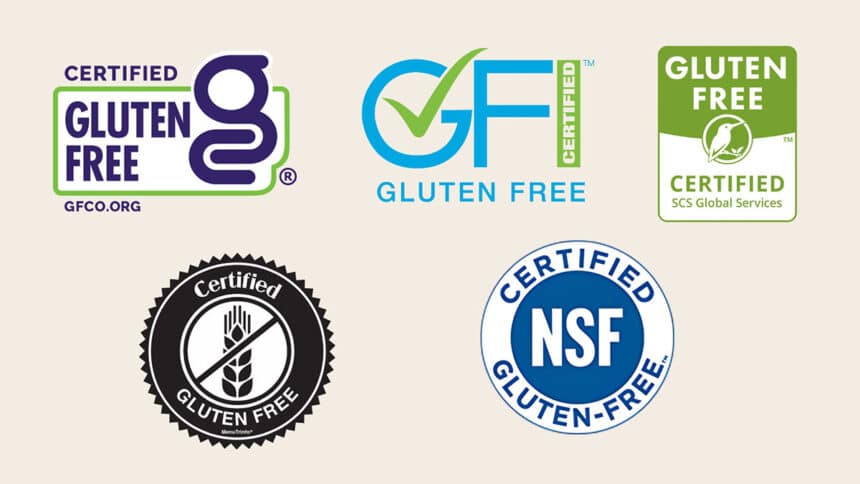
Types of oats and safety guide
We’ve seen that not all oats are created equal when it comes to gluten free diets. The level of processing and handling each type undergoes can impact the safety of those with gluten sensitivities or celiac disease. Here’s what you need to know about different types of oats and their gluten free status:
Quick and instant oats
Quick and instant oats are the most processed types of oats. They’re steamed, chopped, and rolled thinner than regular rolled oats to cook faster. While their processing doesn’t inherently add gluten, their increased handling raises the risk of cross-contact if they aren’t produced in a gluten free facility.
Rolled and old-fashioned oats
Rolled oats, also known as old-fashioned oats, are steamed and flattened for quicker cooking but retain more texture than quick oats. They’re a popular choice for baking and breakfast dishes. However, like other oats, they’re at risk of cross-contact unless they’re certified gluten free.
Did you know? Rolled oats are often the base for gluten free granola and oat bars, but it’s still essential to verify the source for contamination risks.
Steel cut oats
Steel cut oats are less processed than rolled or instant oats, giving them a chewier texture and a longer cooking time. They’re made by cutting whole oat groats into smaller pieces rather than steaming or flattening them.
While their minimal processing might seem safer, steel cut oats can still come into contact with gluten during farming or production. Certified gluten free steel cut oats are your safest bet.
Whole grain oats
Whole grain oats are the least processed form, with the outer husk removed but the rest of the grain left intact. These oats are incredibly nutritious but face the same risks of contamination during farming, storage, and processing.
GF tip: If you’re buying whole grain oats, look for purity protocol oats to minimize the risk of cross-contact.
Organic oats
Organic oats are grown without synthetic pesticides or fertilizers, but this has no bearing on whether they’re gluten free. Organic oats can still be grown in shared fields or processed in facilities that handle gluten-containing grains, making certification just as important.
Reminder: Organic certification is about farming practices, not gluten free status, so always check for the “Certified Gluten Free” label.
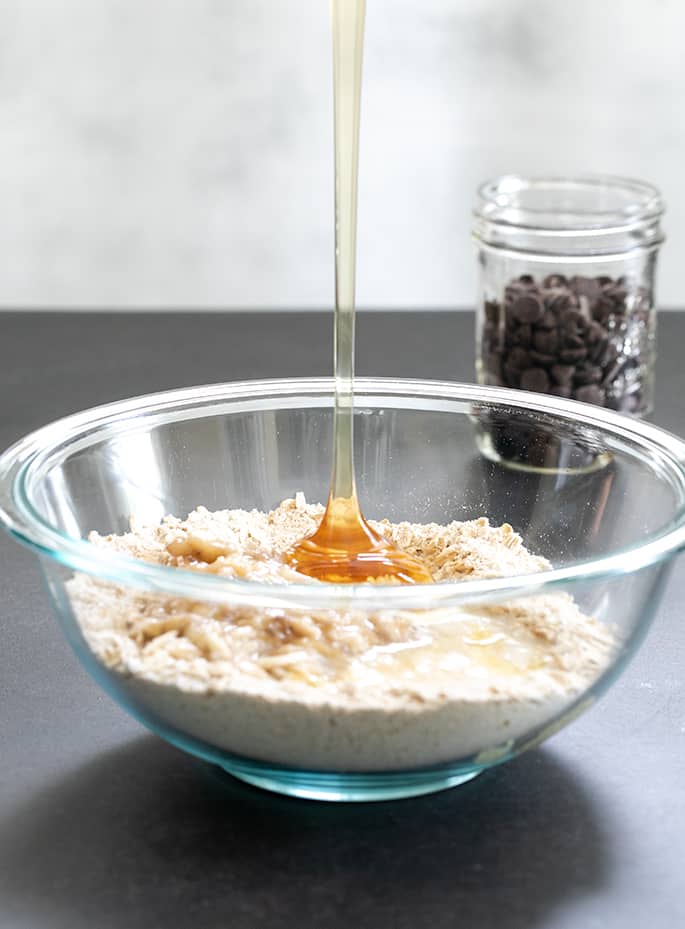
Common questions about oats and gluten
Being gluten free can be tricky, so it’s no wonder lots of questions arise when it comes to oats. Here are some of the most frequently asked questions:
Oatmeal can be gluten free if it’s made from certified gluten free oats. However, regular oatmeal is often processed in facilities that handle gluten-containing grains, making cross-contact a risk. Always check for a “Certified Gluten Free” label to make sure your oatmeal is safe.
Yes, oat flour can be gluten free if it’s made from gluten free oats. You can also make your own by blending gluten free oats into a fine powder, and use it in recipes like our oat flour banana bread. As with oatmeal, cross-contact is a concern, so always verify the source.
Not all oat milk is gluten free. Some brands use regular oats, which are at risk of contamination. Look for brands that specify their oat milk is made with certified gluten free oats, and read labels carefully to avoid hidden sources of gluten.
Only cereals specifically labeled as gluten free are safe for those avoiding gluten. Even if oats are listed as an ingredient, cross-contact or added gluten-containing ingredients can make the cereal unsafe. Always double-check the packaging and ingredient list.
Gluten free recipes using oats
I love using gluten free oats in my kitchen, and these recipes are some of my absolute favorites! Granola bars, energy bites, oatmeal cookies, and no-flour muffins – all packed with whole grains and perfect for the whole family. I hope you’ll enjoy them as much as we do.
And if oats aren’t an option for you, don’t worry! I’ve cracked the code for the best substitutes in gluten free baking. You can still enjoy all these delicious treats, even without oats!
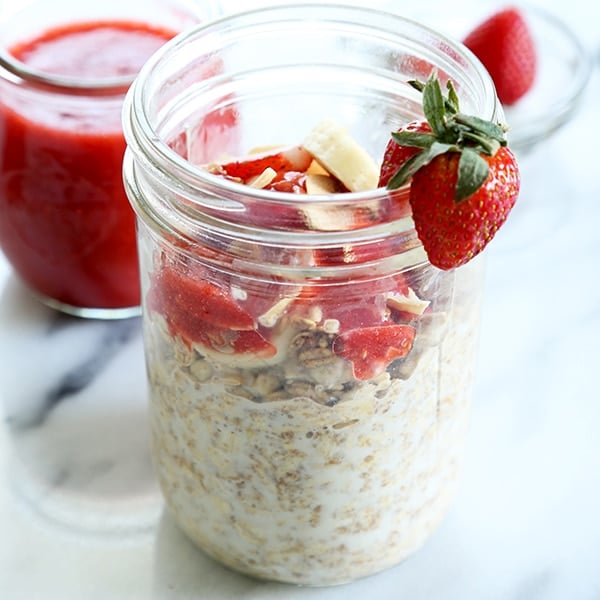
Gluten free overnight oats

Gluten free oatmeal cookies
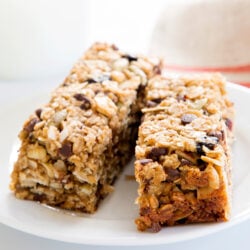
Chewy homemade gluten free granola bars

Maple almond gluten free granola recipe
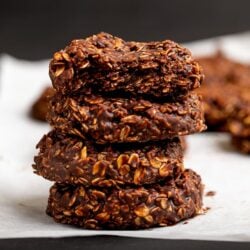
No bake oatmeal cookies
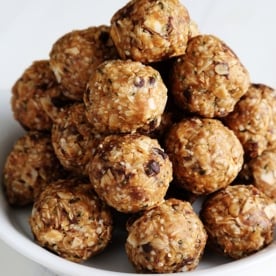
Protein balls

Banana oatmeal muffins
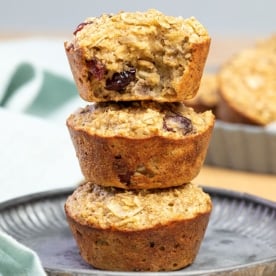
Gluten free oatmeal cups
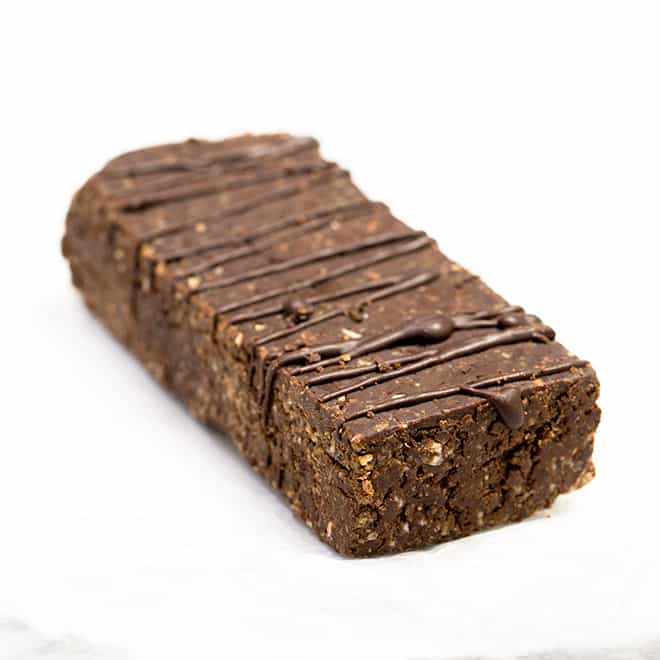

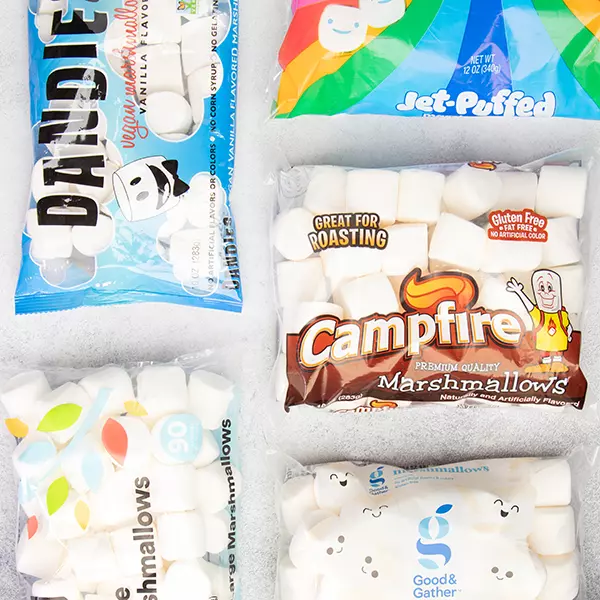

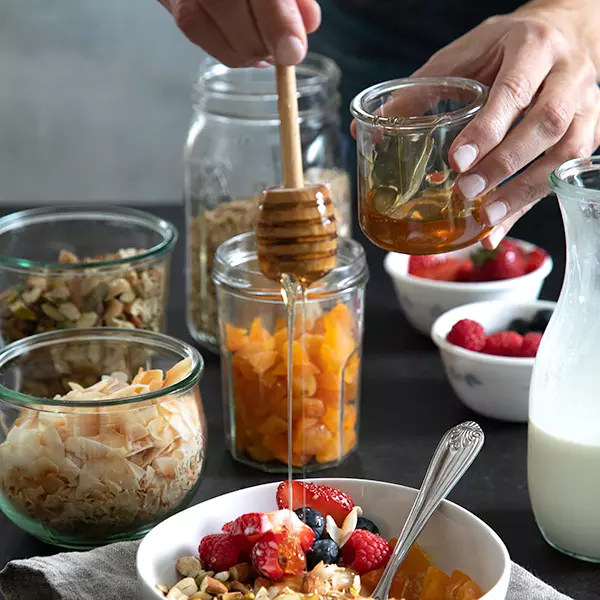
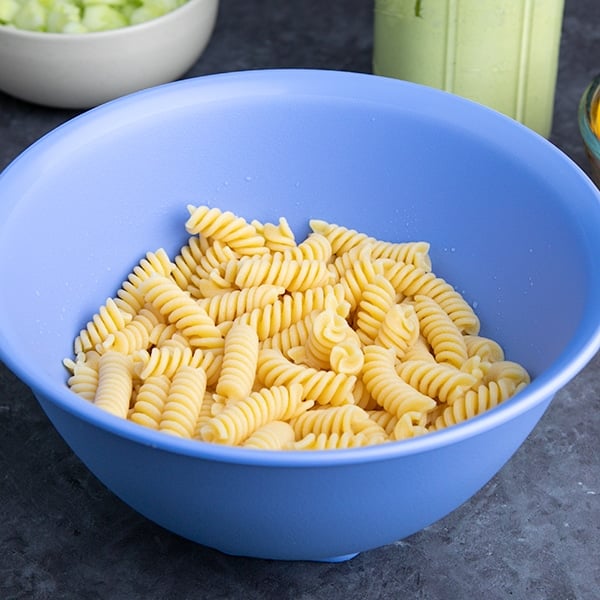









I buy GF oats through the Azure Standard co-op (US). It’s a 50 lb bag for $68 (I think), so it competes price-wise with regular oats. If it weren’t for that, our transition to the GF diet 7 months ago would have been harder budget-wise. We use gallon-size freezer bags and stick them in our deep freezer. As a family of 7 we were already eating oats 3 times a week, so the cost savings is significant.
Thank you for your blog. You have made this exhausting diet much more doable!
I cannot eat oats I get sick from it I have tried many times and as soon as something has oats in it and I eat it by mistake without knowing I get sick
Has anyone tried replacing oats with quinoa flakes?
I bought quinoa flour to use in some of my recipes. We eat quinoa often as a side dish for our meal. The flour was not tasty at all!! Also very expensive. Took it back to the store for a refund.
Yes, quinoa flour can be quite bitter when there is a lot of it in a recipe, Mary.
Yes, you are correct. In Australia, and New Zealand I believe, a product can only be labelled Gluten Free if it has no detactable gluten. Elsewhere it seems that a product can be labelled gluten free if the gluten detected is 20 ppm. Therefore we can buy low gluten oats here in Australia which would be labelled gluten free elsewhere. These are what I buy but, as you say, it is a personal or health choice whether you can eat oats or not.
That may be true in certain circumstances, Maz, that the oats sold as GF in the U.S. comply with the 20 ppm law only. But it isn’t true with all brands of certified gluten free oats in the U.S.
Thanks, the more info the better!
I don’t think the issue of oats being gluten free is as simple anymore as it was when I was diagnosed with celiac disease in 2008. Now, many products that are labeled gluten free and contain oats are being made with mechanically sorted oats. I personally only feel safe eating products made with purity protocol oats. Cheerios, Lucky Charms, and Bakery on Main and Bob’s Red Mill products use mechanically sorted oats, so I will not eat them. Too many people have reported feeling ill after eating “gluten free” Cheerios. I am so disappointed that Bakery an Main and Bob’s Red Mill have moved away from using purity protocol oats. Thankfully, Trader Joe’s has inexpensive purity protocol rolled oats.
I completely agree that there is no way I’d let my son have any of the mechanically sorted oats products from General Mills. I am really disappointed in the way they handled the situation, although it’s my understanding that there aren’t enough pure GF oats available in general for them to be able to make Cheerios with them. But they should be much more up front about the process, and commit to much more testing and oversight. I wasn’t aware that Bob’s Red Mill products were no longer as safe, though, but it’s not surprising given the quality of their other products in general.